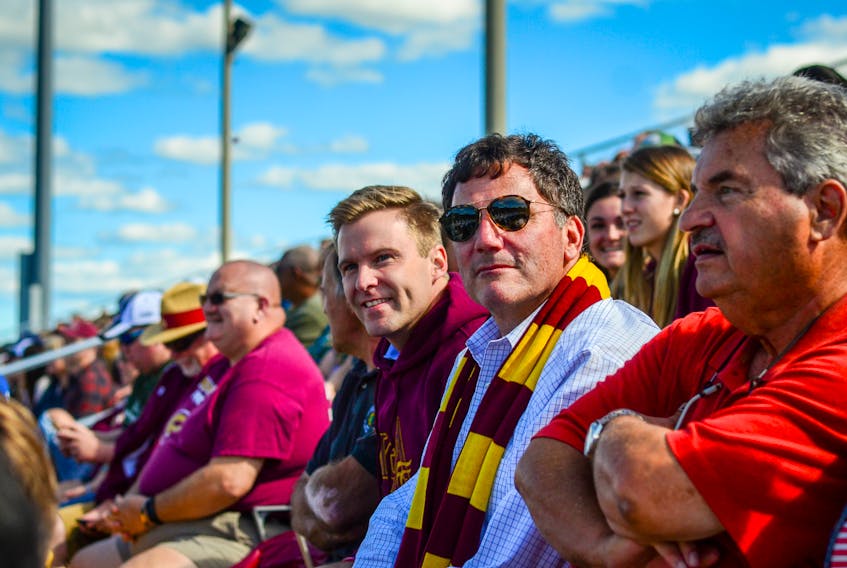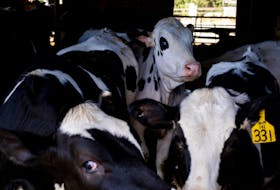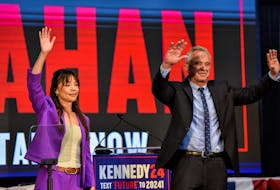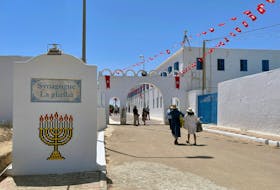SACKVILLE, N.B. - A lot of questions, a lot of unknowns and a lot of speculation.
The provincial government is preparing to head back to the legislature next week with a minority government that is teetering on the edge – and no matter which party tries to take the reins, there is no guarantee of survival for either one.
When the smoke cleared after election night Sept. 24, the results were like nothing this generation of New Brunswickers had ever seen before. With the province not having a minority government for nearly a century, voters weren’t quite sure how it would now play out.
After the votes were counted, the Progressive Conservatives had won 22 of the 49 seats, three short of the total needed for them to run a majority government. Brian Gallant's Liberals had earned 21 seats, while the Greens and the People’s Alliance each swooped in and nabbed three seats.
Since that time, Gallant and PC Leader Blaine Higgs have been wrangling over who will govern the province – Higgs saying he won the most seats so he should lead, while Gallant, as the incumbent party in a minority situation, has the legal right to try and gain the confidence of the House before handing over the reins.
Did you know?
• In Canada's parliamentary system, minority governments occur when no party has a majority of seats in the legislature. In a minority situation, governments must rely on the support of other parties to stay in power, providing less stability than a majority government.
• At the federal level, there have been 13 minority governments. There have been about 30 in Canada's provinces and territories since 1867.
• New Brunswick hasn’t had a minority government since 1920. Out of the 48 seats that year, the Liberals won 24, Conservatives 13, United Farmers 9 and Farmer-Labour 2. The Liberals would remain in government until losing the 1925 election to the Conservatives.
Despite political wrangling over the past few weeks, Gallant has not, so far, been able to form any type of formal agreement with the Greens or the People’s Alliance, so he will face an uphill battle.
The potential for the Liberals to form the next government - or even that the session will resume as scheduled - was cast further into doubt Oct. 18, just days before the legislature was expected to go back on Oct. 23. That's when all eligible MLAs - those who are not ministers or party leaders - from all four parties withdrew or said they intended to withdraw their names from the ballot for the Speaker position, leaving Gallant in an even more precarious position.
Without a Speaker, no government business can take place – but neither leader wants to give up an MLA to the Speaker’s Chair because it would further reduce their ability to pass legislation. This could result in a deadlock even before Gallant has an opportunity to introduce his Throne Speech or prevent the session from resuming as expected.
Could this mean an election? Or will it be an opportunity for the Lieutenant Governor to put Higgs on the hot seat and see if he can get a Speaker elected and a Throne Speech passed?
Only time will tell – and the answers could come much sooner than later.

THE TIMELINE
Here’s what has happened since Election Day:
Sept. 24 - Election night. After earning 22 seats, Blaine Higgs claimed victory, saying his PC team had received a mandate to govern. Brian Gallant did not resign, however, instead stating his intent to remain in office and trying to secure support on a vote-by-vote basis.
Sept. 25 - Gallant received permission from the Lieutenant Governor to continue in office and attempt to seek the confidence of the legislature.
Sept. 27 - Higgs met with the Lieutenant Governor and was told that if Gallant was unable to secure the confidence of the House, he would be called on to form the next government.
Oct. 1-5 - Talks between all of the parties began over possible coalitions, agreements or support. Both Kris Austin of the People's Alliance and David Coon of the Green Party were noncommittal in their support for the two main parties. Austin stated he might support a Progressive Conservative government for 18 months, though no formal agreement was made. Gallant ruled out any potential arrangement with the PCs or PA because they don’t share Liberal “values.”
Oct. 5 – Judicial recounts confirmed election wins in three ridings – Oromocto-Lincoln-Fredericton, Saint John Harbour and Memramcook-Tantramar.
Oct. 10 – Brian Gallant announced he will reconvene the legislature on Oct. 23. Green Party leader David Coon announced the Green Party would not formally side with either party and would base votes on its own 'declaration of intent.’ Coon said Green support for the throne speech would depend on its content, and that each of his MLAs would be free to vote their own way on the speech.
Oct. 17 – Higgs said PCs won’t vote for Throne Speech regardless of what’s in it; rules out coalition/agreement with Liberals.
Oct. 18 – All eligible MLAs withdrew or said they were withdrawing their names from the ballot to become Speaker.
Oct. 19 – MLA-elects are sworn in.
READ MORE:
- Three interesting takeaways from election night
- Going Green: Meet the new Memramcook-Tantramar MLA
- Mitton’s win confirmed in Memramcook-Tantramar
THE PLAYERS
Here’s what you should know about each of the parties who earned seats on Sept. 24
Liberal Party
Leader: Brian Gallant
Became party leader in 2012 without a seat and was elected to the legislature in 2013 as opposition leader, won a majority for the Liberals in October 2014.
Campaigned on: Fairness and opportunity.
Liberals promised to invest further in infrastructure renewal plan, double the Youth Employment Fund, raise the minimum wage to $14 and freeze power rates for residential customers and small businesses. Also pledged to put major investments in NB schools, adding 100 more teachers to the school system and bringing the trades back; as well as expand free and subsidized child care, eliminate interest on student loans, and enhance the free tuition program. The Liberal platform also included the creation of non-urgent care clinics to reduce ER wait times and provide more hours of nursing home care. Made marijuana part of the province’s economic strategy.
Progressive Conservatives
Leader: Blaine Higgs
Elected to the legislature in 2010, served as finance minister under former premier David Alward, became party leader in 2016.
Campaigned on: It’s Time for Results.
The PCs promised to try and find common-sense ideas that don’t cost much but make a difference – freeing up teachers from over-regulation; building a blue economy from oceans and coastlines; helping families overcome poverty; empowering nurses, pharmacists and paramedics to take the load off crowded ERs and overworked doctors. Higgs said his platform would balance the books without raising taxes or costing New Brunswickers their jobs. Vowed he would take a more honest and responsible approach to governance, with less divisive politics.
Green Party
Leader: David Coon
Elected as party leader in 2012 and won legislature seat in 2014 – a first for New Brunswick’s Green Party – and was reelected in 2018.
Campaigned on: Our Pathway for Change
The Green Party’s platform focused on a vision of New Brunswick where communities make important decisions about health services, education and economic development; entrepreneurs move the province into the low-carbon economy; waterways are protected; budgets are stable; poverty, mental illness and addictions are tackled; more local foods and goods are encouraged; energy efficiency is promoted; and indigenous and linguistic communities are maintained and respected.
People’s Alliance
Leader: Kris Austin
Co-founded the party in 2010 amid anger over the government's plan to sell NB Power to Hydro-Quebec. Nearly won the riding of Fredericton-Grand Lake in 2014. One of three People’s Alliance MLAs to be elected on Sept. 24.
Campaigned on: Be the Change
Promised to do away with political decisions that benefit the few at the expense of the many. Investing in needed areas while eliminating redundant and wasteful spending. Eliminate duality in government services including school buses and healthcare. Eliminate the office of the Official Language Commissioner. Eliminate bilingual requirements for public service jobs in regions where there's no demand. Reduce clear cutting of New Brunswick forests. Stop glyphosate spraying on crown lands.









